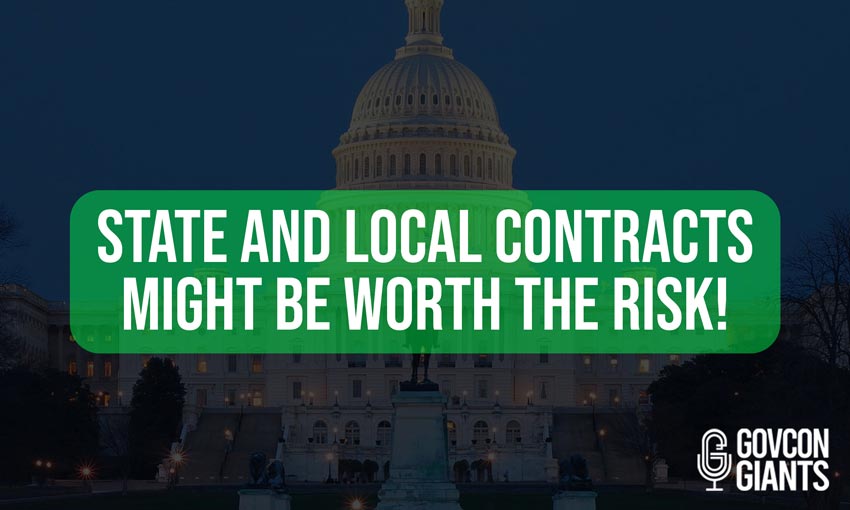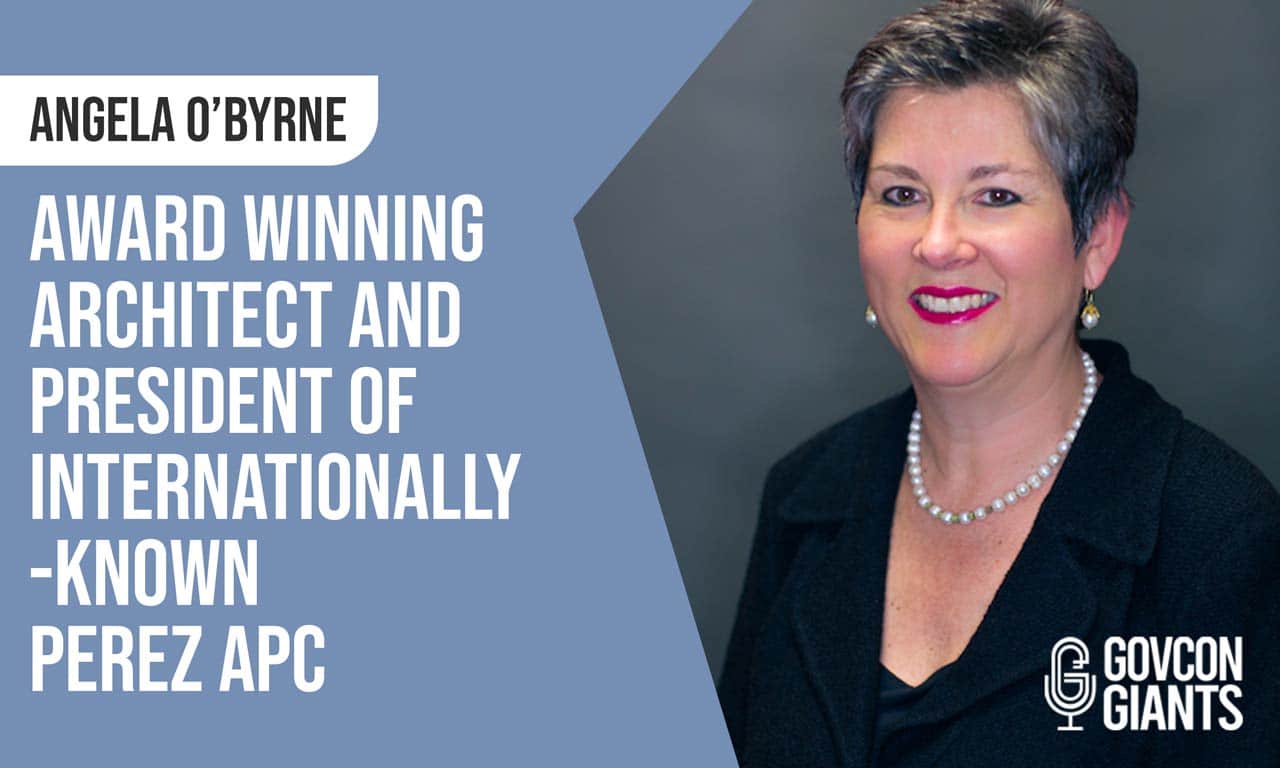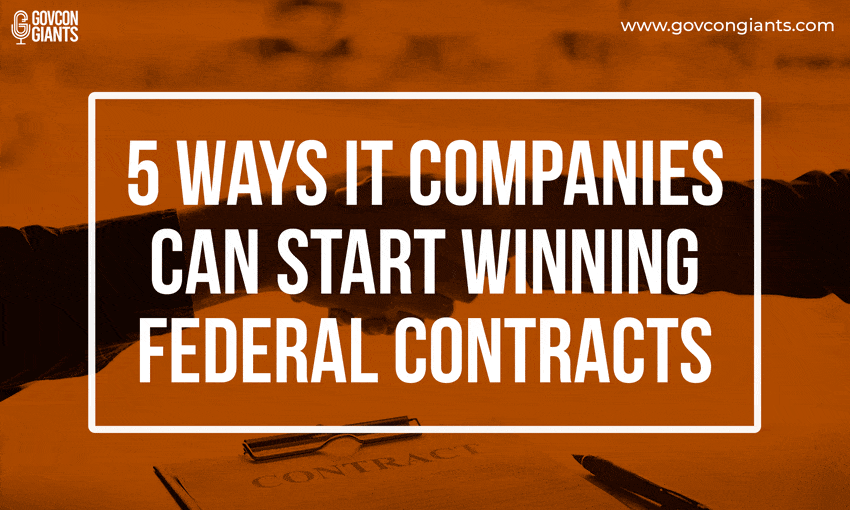What is the most effective way to win federal contracts? Market your business to the government.
When people think about government contracting, the first thing that comes to mind is bidding contracts. Most people believe that bidding is the only way to get government contracts, and that is entirely false.
You could win government contracts in so many ways, and quite frankly, bidding is not the route we advise you to take.
When you bid, you are thrown into a pool of people, and some of them might not fully understand the contract requirements. Some might not be qualified or even capable of the work expected of the agreement.
You’re saying, “So what? I’m capable, so it doesn’t matter.” but actually, it does. You aren’t putting your company in the best position.
CONSIDER NEGOTIATED CONTRACTS
How do you put your company in the best possible position? Through negotiated contracts! When you negotiate contracts, you become the expert.
The government is turning to you and trusting you to give your opinion on solving their problem. This method, however, is not a process that is as direct as bidding contracts.
Building relationships and getting connected to contracting people plays a vital role in this method.
For you to even have the opportunity of negotiating with the government, you need to market yourself. You need the government to know who you are and what you can offer.
ABC’s OF MARKETING TO THE FEDERAL GOVERNMENT
1. Go to a business specialist.
When you are a small business, you can reach the government by talking to small business specialists. They are called different things; OSDBUs, Small Business Liaison Officers, or, in short, SBLOs.
No matter what they are called, they do the same thing. More specifically, they can help introduce you to people who can negotiate directly with you, such as people from agencies or contracting officers.
Bear in mind that these small business specialists do not give contracts. They, however, can help facilitate government and small business relationships that will lead you to contract opportunities.
Assuming that you have already built your target market list, now you want to start talking to people about contracts. Since we follow a chain of command, the small business specialist is the first person you go to.
Most agencies have a forecast list that shows their upcoming projects and, instead of being pigeon-holed to the idea that these projects are projects that you want to get, use the forecast list as a marketing tool.
Identify the projects you know you’re capable of performing, and you have past performance on, then present to these small business specialists.
2. Have a complete and updated SBA Profile
You did your presentation, and you spoke to the small business specialist, so what’s next? The small business specialist will most probably talk to the contracting people about you.
When that happens, the government will go to your SBA profile to know your past performance and experience. Please remember that the government is looking at this to judge you. So curate your profile in a way that speaks to a contracting officer.
The second way to market to the federal government is making sure that your SBA profile is complete and updated. Your profile should be a reflection of who you are and what you do.
Make sure to put all your experience, even those not related to the federal government. Although this is something so easy, this is often overlooked by people.
3. Respond to Sources Sought
Sources sought is another way to market yourself to the agency or the office. The contract specialist has your information, so there’s no need for you to contact that contracting officer.
It is an opportunity for you to tell your company’s capabilities, social-economic status, and past contract experiences. It’s like giving a free pitch.
The government has to do sources sought for market research, and by responding to them, you are helping them with it. In fact, in an interview with Donnie Harris, a former senior contracting officer, he said that he doesn’t return emails to people who don’t help with sources sought.
You’ve already spent your time with the small business specialist, updated your SBA profile, and now you’ve responded to sources sought, the contracting officers can’t get away from you.
4. Join Events
When you attend events, you meet many people from different industries, and those people know people who might be your company’s future clients.
If you leave a good impression, the chances of you being contacted are amplified, as they remember you and your company’s services. This is how you connect with people.
To make your way in the government contracting industry, you need to build relationships with people in the marketplace, and one of the most effective ways is by meeting and talking to them.
Through this, you can let them know what you can offer, and who knows, maybe 2 or 3 years from now, they need people to perform services that you can do.
Let’s take a few steps back. You’ve met with a business specialist, updated your profile, responded to sources sought, and now joined events with contracting specialists and people in the federal arena.
Congratulations! You have now placed your company in the best position to get contracts.
RESOURCES
Now, you know the fundamentals of marketing to the government. It’s about time for you to go and do it! Government Contracting is more about building relationships than bidding contracts.
With this in mind, if you want to learn more about the tips and tricks in winning government contracts, then join us here at GovCon Giants.
You could also visit our website and other social media platforms or check the new GovCon Edu, where you learn everything about government contracting!
To learn more about the topic above, check these resources below:
11: Unlimited Warrant to Write Billions in Contract Actions – Donnie Harris
https://www.youtube.com/watch?v=R_H15m0jKgY
ABC’s of Marketing to the Federal Government
https://www.youtube.com/watch?v=o_QFjjeZMCA&t=1427s










